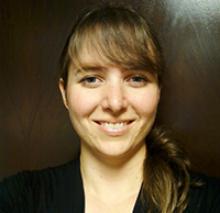Software testing and poker have interesting commonalities. Some say there’s no use in either, that both are a waste of money and, at worst, dangerous to the financial health of the poker player or software project. Proponents say that both teach us something valuable and are enjoyable activities.
Bonnie Bailey is a software test engineer for a health care information technology company. Bonnie is an avid reader of fiction and non-fiction, including software design, testing and development, disruptive and emerging technologies, business leadership, science, and medicine. She also enjoys writing.
All Stories by Bonnie Bailey
Bonnie Bailey explains that you need to take care of your users’ needs first, and then, just maybe, they will explore the fabulous features of your software. When we focus on our product rather than on what the user is trying to get done, we suffer from marketing myopia.
Bonnie Bailey writes that confirmation bias leads us to throw out the critical thinking needed to determine if the “average cost to fix one defect” metric, which is what we really have to figure out to get the data points for the Boehm curve, is really even a valid metric in the first place.
The solution to prioritizing work is a matter of prioritizing audiences. A tester’s work has an audience: users, coworkers, and bosses. Testing is a service we provide to each audience, so it is important to know which audience is at the top of the "make happy" list.
Bonnie Bailey writes that helping developers debug can be a boon to the team; testers are naturally good at sniffing out problem areas and understanding how seemingly disparate pieces tie together.
Bonnie Bailey writes that software teams should use split, also called A/B, testing to capitalize on the human subconscious. Just about any software effort can benefit from knowing what increases revenue or user satisfaction, which ultimately boosts the success of the project.
Bonnie Bailey writes on the importance of the best workspaces for testers. Making workspaces that enhance a variety of testing tasks—cooperation, collaboration, and concentration—can help the craft of software testing rise to the occasion of today’s challenges in software development.








